Welcome to another edition of our Hub Spotlight series where do a deep dive into the men and women who make the trades great. This spotlighted tradesperson tells us that he really enjoys trashy reality TV. “Nothing like kicking your feet up and watching someone making horrible life decisions on 90-Day Fiancé on a Sunday Read more
Featured Articles
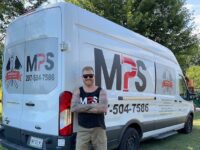
Welcome to another edition of our Hub Spotlight series where do a deep dive into the men and women who make the trades great. This spotlighted tradesperson tells us that he really enjoys trashy reality TV. “Nothing like kicking your feet up and watching someone making horrible life decisions on 90-Day Fiancé on a Sunday evening.” Joking aside, for Keith McGillivary (@mps_207)—full-time business owner of McGillivary’s Plumbing Services (MPS), Gardiner, Maine, for the past two years—his story into the plumbing trades is an interesting one.
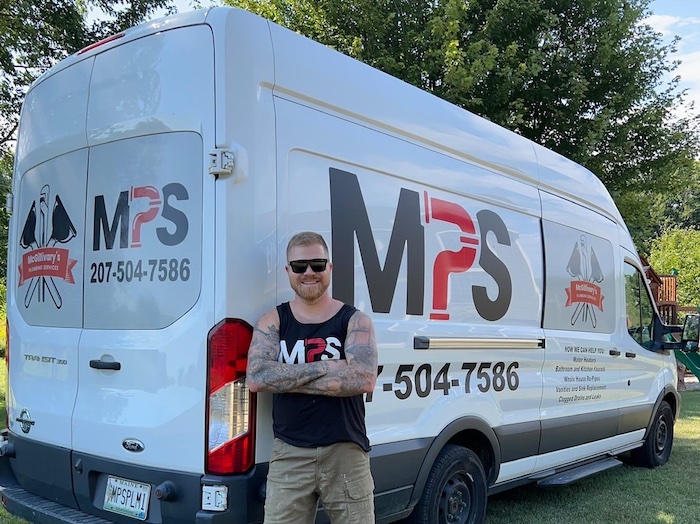
McGilivary’s path started in a small town when a small plumbing business was looking for a helper, and he was looking for a job. “Little did I know it would be the start of where I am now,” says McGillivary. Before college, McGillivary started working for a small plumbing business that primarily focused on service work. The owner, Russell, was/is a great mentor and really took the time to help him understand not only what they were doing, but why they were doing it.
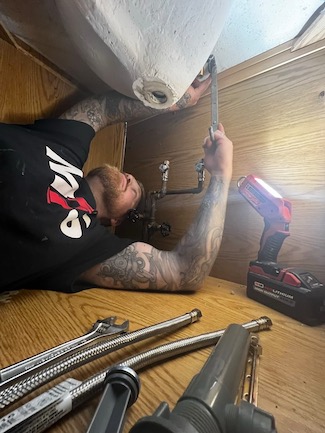 After deciding to pursue plumbing, McGillivary attended Southern Maine Community College (SMCC) for its plumbing and heating program. Through college, he continued to work alongside his mentor, and after graduation, continued to work for him full time for three years. McGillivary then took a job at Bath Iron Works (BIW) as a pipefitter building destroyers, ships for the United States Navy. “The piping systems were complex, and although it was “plumbing on a ship,” it was completely different. I found it fun to learn the ins and outs of that particular plumbing,” says McGillivary.
After deciding to pursue plumbing, McGillivary attended Southern Maine Community College (SMCC) for its plumbing and heating program. Through college, he continued to work alongside his mentor, and after graduation, continued to work for him full time for three years. McGillivary then took a job at Bath Iron Works (BIW) as a pipefitter building destroyers, ships for the United States Navy. “The piping systems were complex, and although it was “plumbing on a ship,” it was completely different. I found it fun to learn the ins and outs of that particular plumbing,” says McGillivary.
Eventually, McGillivary joined the Pipefitter Test Crew and tested the piping systems after they were built. He worked there for six years, but the whole time he continued to work nights and weekends doing plumbing work on the side. “This allowed me to gain hours and knowledge for my Master’s test. After passing my Masters, I decided to make the plunge into self-employment because I wanted the schedule flexibility for my family,” says McGillivary.
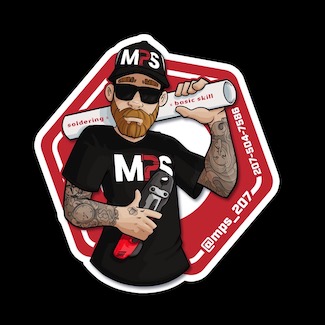 In fact, McGillivary’s biggest motivation for self-employment was time, rather than money. “I have learned to set firm boundaries for myself when scheduling and taking on jobs. I have been able to take more time off for my family than ever. Being a service plumber, in this day in age, you could work 24/7 if you wanted. I try to work ‘normal’ hours, and if I can take a day off for family stuff, I always do,” says McGillivary.
In fact, McGillivary’s biggest motivation for self-employment was time, rather than money. “I have learned to set firm boundaries for myself when scheduling and taking on jobs. I have been able to take more time off for my family than ever. Being a service plumber, in this day in age, you could work 24/7 if you wanted. I try to work ‘normal’ hours, and if I can take a day off for family stuff, I always do,” says McGillivary.
Shout Out to Mentorship
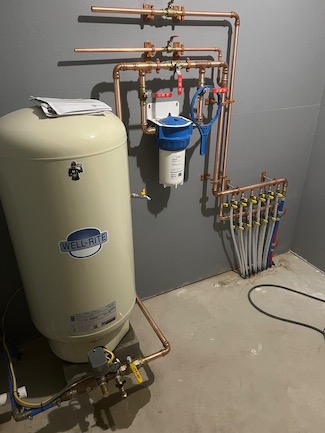 According to McGillivary, Russell taught him everything he knows about plumbing and owning a business. “He taught me all the hands-on work, how to write estimates & bid on jobs, customer relations, and how to balance a small business/family life,” says McGillivary.
According to McGillivary, Russell taught him everything he knows about plumbing and owning a business. “He taught me all the hands-on work, how to write estimates & bid on jobs, customer relations, and how to balance a small business/family life,” says McGillivary.
And McGillivary wants to pay it forward. “I definitely consider myself a role model for others looking to join the trade. I feel I am a good example that hard work and dedication pays off,” says McGillivary. “My mentor was so important to my journey that I try to give back what I can by being transparent about my plumbing knowledge.”
Uplifting the Trades
Recently, there has been a big push for kids to attend trade school so there has been a shift in younger people showing interest, says McGillivary. “Trade school was beneficial for me to learn the code side of things, in an environment different from the hands-on work. I think we could get more interest in the trades if the schools showcased all the different avenues someone could go once they completed their schooling, and the financial opportunities that come with them. Everyone expects a doctor to make six figures, but not everyone knows you can make that in the trades without massive student loan debt,” says McGillivary.
“Everyone expects a doctor to make six figures, but not everyone knows you can make that in the trades without massive student loan debt.”
Social media can also be used to attract more people to the trades. “I see it all too often when guys in the trade are way too harsh on people for asking questions on Facebook plumbing pages. There are so many people asking questions for the purpose of learning and gaining knowledge. We were all there at some point, so be kind enough to answer the questions in a helpful manner. Social media can also be used to form “new-to-the-trades” communities and to provide seminars,” says McGillivary.
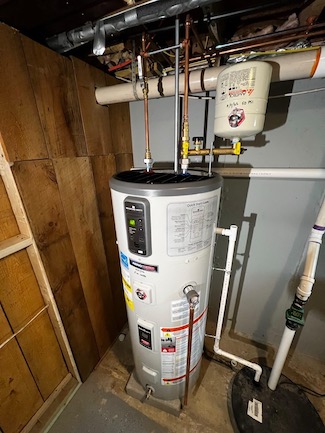 Social media also has played a huge role in the growth of McGillivary’s business. Starting as a small, part-time business with the help of word-of-mouth recommendations on small town Facebook pages, which made McGillivary realize that social media could be used to showcase the work he is doing on a day-to-day basis. “I use my Instagram to show what I am about as a business and the work I put out. I have found that if a customer can see why you are more expensive than the other guy, then they are more likely to go with you. I use it as an open-door insight to my business both in reels and daily stories,” says McGillivary.
Social media also has played a huge role in the growth of McGillivary’s business. Starting as a small, part-time business with the help of word-of-mouth recommendations on small town Facebook pages, which made McGillivary realize that social media could be used to showcase the work he is doing on a day-to-day basis. “I use my Instagram to show what I am about as a business and the work I put out. I have found that if a customer can see why you are more expensive than the other guy, then they are more likely to go with you. I use it as an open-door insight to my business both in reels and daily stories,” says McGillivary.
McGillivary uses social media to learn little tricks of the trade that he just wouldn’t have been exposed to, being from such a small town. For McGillivary, it is extremely beneficial to be able to have conversations with such great tradesmen. He also talks to apprentices daily or weekly about projects, and gives them advice. “I wish when I was learning, I had this platform to learn and meet others. As visual learners, much like a lot of trades guys I know, it’s changed the way we can learn,” says McGillivary.
Making Time
Summers in Maine are short, so McGillivary tries to spend every nice weekend camping in his camper. In the winter months you can find him on his snowmobile at camp. “I would love to ride my snowmobile from camp in northern Maine to the Gaspe Peninsula to complete the “Great Gaspe Snowmobile Tour,” a six-day, 1,500-mile ride around some of the best trails,” says McGillivary.
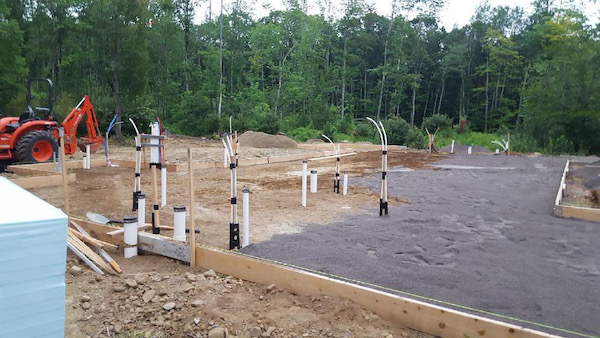
And the last day McGillivary said it was a great day? “You know it’s funny, as I look back on just yesterday—camping with my family, beautiful weather, everyone smiling, does it get much better than that? So, the answer to that question would be yesterday!”
Go-To Tools on the Job
According to McGillivary, his go-tools are a couple pairs of Knipex Cobra pump pliers, a 6-in-1 screwdriver, and an adjustable wrench. Any good service plumber can fix most things with those!
Also, I find myself feeling naked if I don’t have my Leatherman Wave on me. Another great tool that has many uses.
Lastly, if there was one tool that changed the service plumbing game, it’s the M12 Milwaukee press tool. If you’re running a service company and don’t have one, you’re late to the party.

Eric Aune with Mechanical Hub joins American Plumber Stories for a “Signing Day” special at the Build My Future event, hosted by the Iowa Skilled Trades. Take a look at the exhibitors and the hands-on experiences offered for students considering a career in the trades. Iowa Governor, Kim Reynolds, also presents at the celebration and Read more
Eric Aune with Mechanical Hub joins American Plumber Stories for a “Signing Day” special at the Build My Future event, hosted by the Iowa Skilled Trades. Take a look at the exhibitors and the hands-on experiences offered for students considering a career in the trades. Iowa Governor, Kim Reynolds, also presents at the celebration and signs each student’s letter of intent as they commit to their future in the trades after high school.
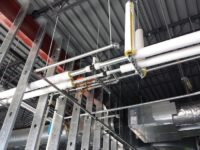
By Aaron Stotko When a century-old Dallas railroad company headquarters required major renovations to transform into a Homewood Suites by Hilton, initial cost estimates for the hydronic heating system came in too high. That’s when City Wide Mechanical of Dallas looked to alternative piping systems for a solution. They found PEX-a pipe with F1960 expansion Read more
By Aaron Stotko
When a century-old Dallas railroad company headquarters required major renovations to transform into a Homewood Suites by Hilton, initial cost estimates for the hydronic heating system came in too high.
That’s when City Wide Mechanical of Dallas looked to alternative piping systems for a solution. They found PEX-a pipe with F1960 expansion connections to be the ideal system, due to its durability and ease of installation in addition to the job-site productivity, safety and, best of all, profitability potential it provided.
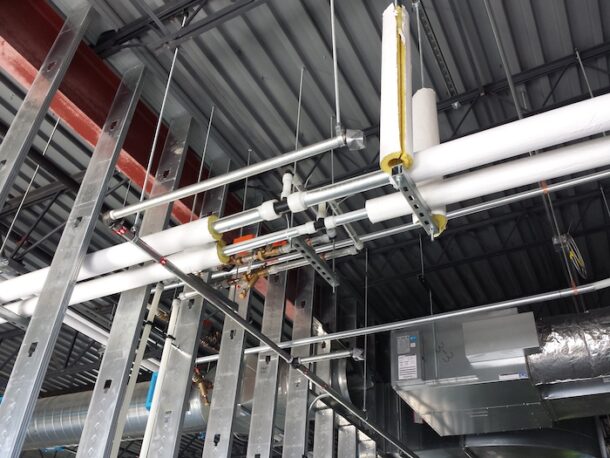
And City Wide Mechanical isn’t alone in their findings. Many mechanical contractors are discovering the benefits of PEX-a pipe and F1960 connections as the preferred alternative to copper, iron, and steel, which have dominated the mechanical piping industry for decades.
Benefits of PEX-a
PEX is an acronym for crosslinked polyethylene. It has been used in North America since the mid-1980s, starting with radiant floor heating systems, then moving into plumbing and, eventually, to hydronic hot-water heating and chilled-water applications.
PEX can be manufactured via three different processes, which create products with varying crosslinking percentages that allow for different characteristics. PEX-a is the most durable, flexible, and resilient with crosslinking around 85%. PEX-b is a stiffer piping product with crosslinking around 65% to 70%, and PEX-c features crosslinking around 70% to 75%.
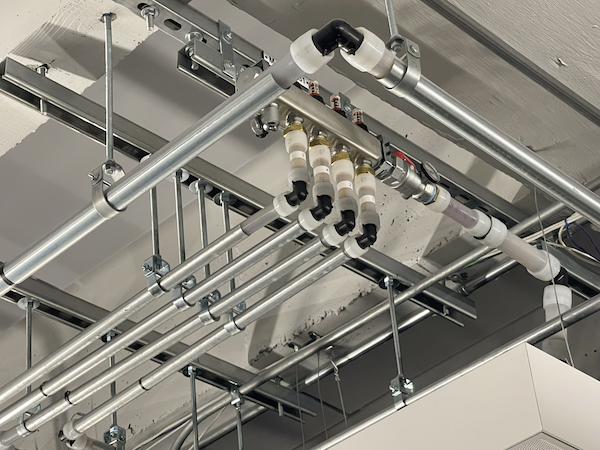
ASHRAE Headquarters Grand Opening Fall 2021, photos by Devin Abellon
One major benefit of the higher crosslinking in PEX-a is its extreme flexibility along with its thermal and shape memory. The flexibility of PEX-a eliminates most connections in smaller-diameter piping, saving time and money with up to half the connections required in rigid metal piping systems. To make a change in direction, the installer simply bends the pipe instead of having to stop and make a fitting. There are also bend supports available that help hold a bend securely in place.
The thermal memory of PEX-a provides kink repairability with a simple shot of heat from a heat gun. This eliminates the need to add in a coupling if a kink ever occurs in the pipe. (It is important to note that kink repairability is not possible with PEX-b or PEX-c pipe.)
The shape memory of PEX-a allows the pipe to expand and contract back down to its original shape. This makes it extremely resilient in freezing conditions and also provides for the fastest, easiest, most reliable PEX-a fitting system — F1960 expansions.
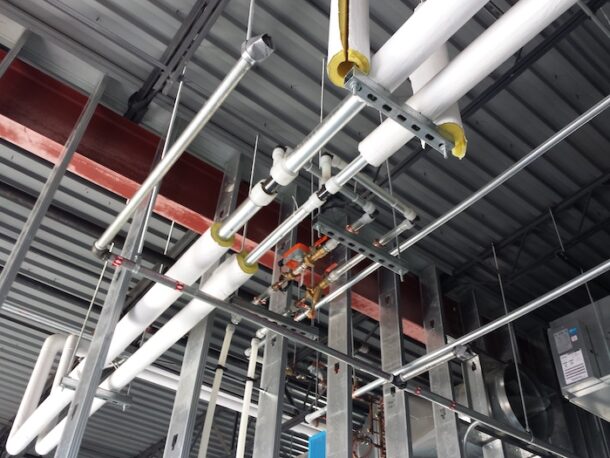
Expansion fittings require one simple tool to expand the pipe and an expansion ring before inserting a fitting. As the pipe and expansion ring naturally shrink back to their original shape, it creates a strong, durable connection that holds tight and can never be dry-fit. (Note: It is not recommended to expand PEX-b or PEX-c pipe due to microcracking that can occur.)
The innovative expansion fitting method eliminates torches, glues, and solder from a job site for greater worker safety. Plus, the system is extremely easy for installers to learn, helping get new crews up to speed quickly.
Speaking of job-site safety, PEX is also much lighter in weight compared with metal systems. For example, a 300-foot coil of 1/2-inch PEX weighs about 18 pounds, whereas the same amount of copper pipe weighs around 85 pounds. The lighter weight of PEX makes it safer and easier for installers to move around a job site and also eliminates the need for heavy-lifting equipment.
PEX-a also has a long-term advantage over copper when it comes to performance longevity. It is a static system, meaning its internal surfaces — which are three times smoother than copper — will not pit, scale, or corrode. That means its performance will remain the same from day one through decades of use.
Finally, because it is not a traded commodity, PEX-a holds a relatively stable material cost. This makes bidding a project much more consistent and reliable.
Application Details and Installation Tips
PEX-a is regulated by the ASTM F876 standard, which denotes temperature and pressure ratings of 200°F at 80 psi (pounds per square inch), 180°F at 100 psi, and 73.4°F at 160 psi. These values are well within the range of operation for most hydronic systems, including chilled beams, fan coil units, baseboards, radiators, hydronic VAV (variable-air volume) reheat coils, and radiant manifolds.
Because PEX is oxygen-permeable, it is important to use a pipe with an oxygen barrier that limits oxygen diffusion to levels below DIN 4726. This will protect the metallic components in the mechanical piping system, such as valves, strainers, and pump volutes, from corrosion.
The pipe is manufactured in sizes from 5/16 inch up to 4 inches and features a copper tube size (CTS) outside diameter. This means all the off-the-shelf components used in a copper hydronic piping system — hangers, supports, and insulation — can be the same.
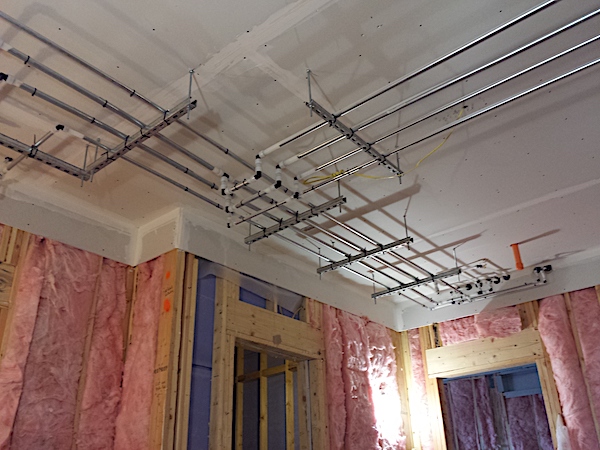
For horizontal piping, the industry offers PEX-a Pipe Support — a galvanized-steel channel that is 9 feet in length and available in PEX pipe sizes from ½ inch to 3½ inches. This solution enables hanger spacing similar to copper pipe and helps control the natural expansion and contraction of the pipe as it heats and cools.
Because PEX-a expands at 1.1 inches per 100 feet per 10°F Delta T (which is 10 times that of copper), installing anchors every 65 feet and using PEX-a Pipe Supports allows PEX-a to function much like a copper system. In fact, different installation methods have a different effect on the overall net expansion rate.
With a strut-and-clamp system, using PEX-a Pipe Supports and anchoring with fixed points reduces the expansion rate of PEX-a to 0.08 inches per 100 feet per 10°F Delta T (a rate less than copper). And a loop-and-clevis system can reduce the rate to 0.12 inches per 100 feet per 10°F Delta T.
If you’d like to learn more about PEX-a piping systems, visit the Plastics Pipe Institute at plasticpipe.org or the Plastic Pipe and Fittings Association at ppfahome.org.
 Aaron Stotko is the director of Segment Marketing at Uponor. He can be reached at aaron.stotko@uponor.com.
Aaron Stotko is the director of Segment Marketing at Uponor. He can be reached at aaron.stotko@uponor.com.
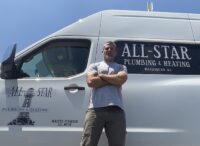
Name: Matthew Fleming Title: Owner Company: All-Star Plumbing & Heating Location: Manasquan, New Jersey Specialty: New Construction Large Custom Homes Although a self-described “rough around the edges” kind of guy, Matthew Fleming (@allstarplumbinginc), owner of All-Star Plumbing & Heating, Manasquan, N.J., admits he’s a girl dad, and he wouldn’t have it any other way. “I Read more
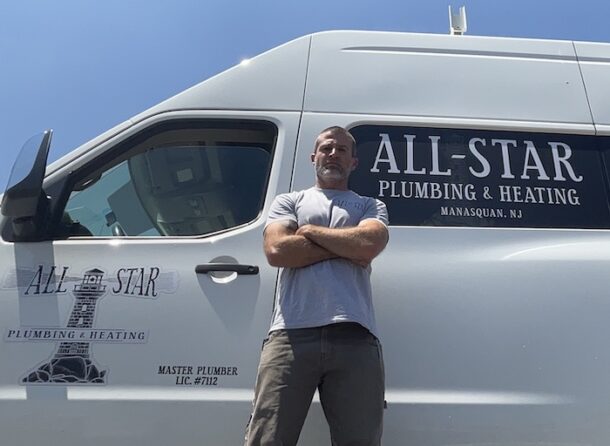 Name: Matthew Fleming
Name: Matthew Fleming
Title: Owner
Company: All-Star Plumbing & Heating
Location: Manasquan, New Jersey
Specialty: New Construction Large Custom Homes
Although a self-described “rough around the edges” kind of guy, Matthew Fleming (@allstarplumbinginc), owner of All-Star Plumbing & Heating, Manasquan, N.J., admits he’s a girl dad, and he wouldn’t have it any other way. “I have no problems laying on the floor and playing dolls with my daughters,” says Fleming. He says that at some point you have to be able to shut OFF work and turn ON home.
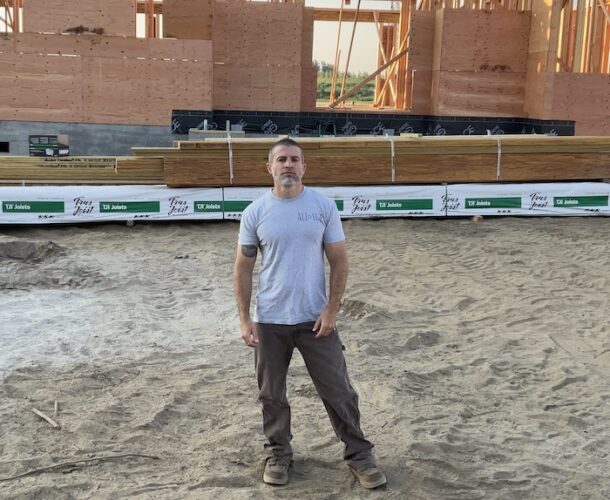
And while spare time doesn’t happen as often as Fleming would like, when it does, he loves hanging at the beach with his wife and kids. He also tries to make time to work out at the gym every morning to clear his head and start the day right. “Work will always be there tomorrow so you need to make sure that you’re not missing those important life/leisure moments that you can’t get back.”
It’s a Generational Thing
With Fleming’s father owning a family plumbing business, it was a simple decision to get into the plumbing industry. Fleming went to college for business administration and construction management to at least give himself a solid base of business knowledge if he was to ever take over the company. A solid decision as it turns out. “I started plumbing when I was about 16 years old but would always help out my dad as a kid. I worked part time through school and college. Once I graduated college, I jumped in full time and I’ve never looked back,” says Fleming.

The Ultimate Influence
Fleming has recently officially taken over the company that his father started 30+ years ago. And it was his father that molded Fleming into the craftsman that he is today. “He instilled in me the values of hard work and determination,” says Fleming. “He was always pushing the envelope and would take on jobs that other plumbers and companies would shy away from. My father always embraced challenges, and after years of doing that, it became clear the you can attack difficult situations with the confidence and mindset that you have what it takes to handle it.”
 Like most modest tradespeople, Fleming doesn’t consider himself a “role model” but he does feel like he has some valuable bits of advice he could pass on to the younger generation looking to get into this trade or take into whatever field they choose. “A lot of plumbing is having the ability to problem solve, and that applies to any field. I encourage people to never be content with their current knowledge and skill set, you can always find ways to improve,” says Fleming.
Like most modest tradespeople, Fleming doesn’t consider himself a “role model” but he does feel like he has some valuable bits of advice he could pass on to the younger generation looking to get into this trade or take into whatever field they choose. “A lot of plumbing is having the ability to problem solve, and that applies to any field. I encourage people to never be content with their current knowledge and skill set, you can always find ways to improve,” says Fleming.
These days a lot of teaching and connecting with others happens through social influencing. “Social media has absolutely made a big impact on my business for multiple reasons. I’ve learned so much from so many of the incredible plumbers across the country and have made some good friends, too. I’ve gotten jobs from the work people have seen on my Instagram, but above that, seeing the amazing work that others put out makes me improve my own work. I always remind the guys that I might take a picture of their work and post it to Instagram for public ridicule by the “super plumbers,” so make sure it’s right, haha,” says Fleming. “Social media can be very valuable if you use it right, and the plumbing community is second to none on there.”
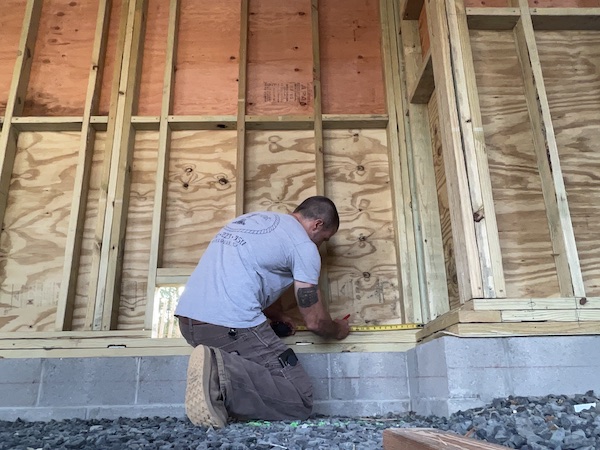
State of the Industry
“I feel like most people believe that being in the trades means that you’re a second-rate citizen and couldn’t get a “real” job,” says Flaming. When in reality, continues Fleming, it’s a respectable occupation that requires highly educated, hard-working people. And with that comes training. “There should be more educational and training options available so that people entering the trades can be trained properly, which will help raise industry standards. Increasing trade school funding to ensure that the programs available are legit programs would absolutely attract more people. They need to be proactive in recruiting instead of just waiting for kids to show up,” says Fleming.
A Hard Day’s Work
One of the most rewarding things about his work is the problem-solving aspect. “I really enjoy when the customer tells me that they had four other companies there prior and nobody could figure out the problem but we did,” says Fleming. I’d say that’s a win.
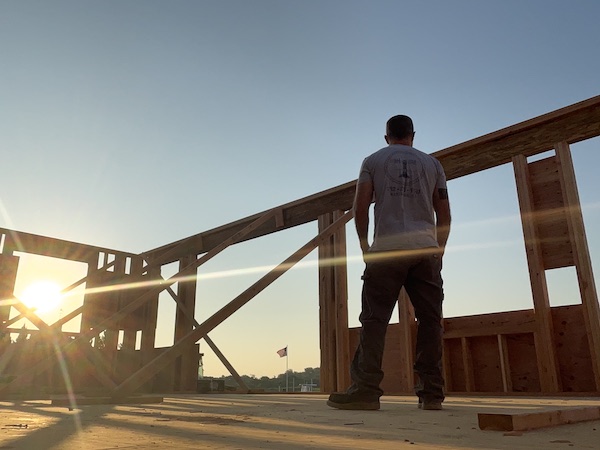 But nothing compares to when you are down and come home to see those smiling faces. “I was having a pretty rough week, put through the ringer. I came home that day feeling pretty defeated only to be greeted by my two daughters—ages 6 and 8—barreling towards me to give me a huge hug as my wife kissed me on the cheek. Instantly, I was reminded of what is really important, and even though I was having a rough patch, I was still doing a good job. It was just what I needed and I thought to myself, ‘I’m extremely lucky to have this life that plumbing has provided me.’”
But nothing compares to when you are down and come home to see those smiling faces. “I was having a pretty rough week, put through the ringer. I came home that day feeling pretty defeated only to be greeted by my two daughters—ages 6 and 8—barreling towards me to give me a huge hug as my wife kissed me on the cheek. Instantly, I was reminded of what is really important, and even though I was having a rough patch, I was still doing a good job. It was just what I needed and I thought to myself, ‘I’m extremely lucky to have this life that plumbing has provided me.’”

You think you have what it takes to own your own plumbing business? Every first-year apprentice dreams about it. But owning your own business someday takes hard work, perseverance and a willingness to learn. Recently, we talked with four prominent business owners about what they thought it took to go off on their own, and Read more
You think you have what it takes to own your own plumbing business? Every first-year apprentice dreams about it. But owning your own business someday takes hard work, perseverance and a willingness to learn. Recently, we talked with four prominent business owners about what they thought it took to go off on their own, and what they have learned from their experiences of ownership. Here is the advice that they shared:
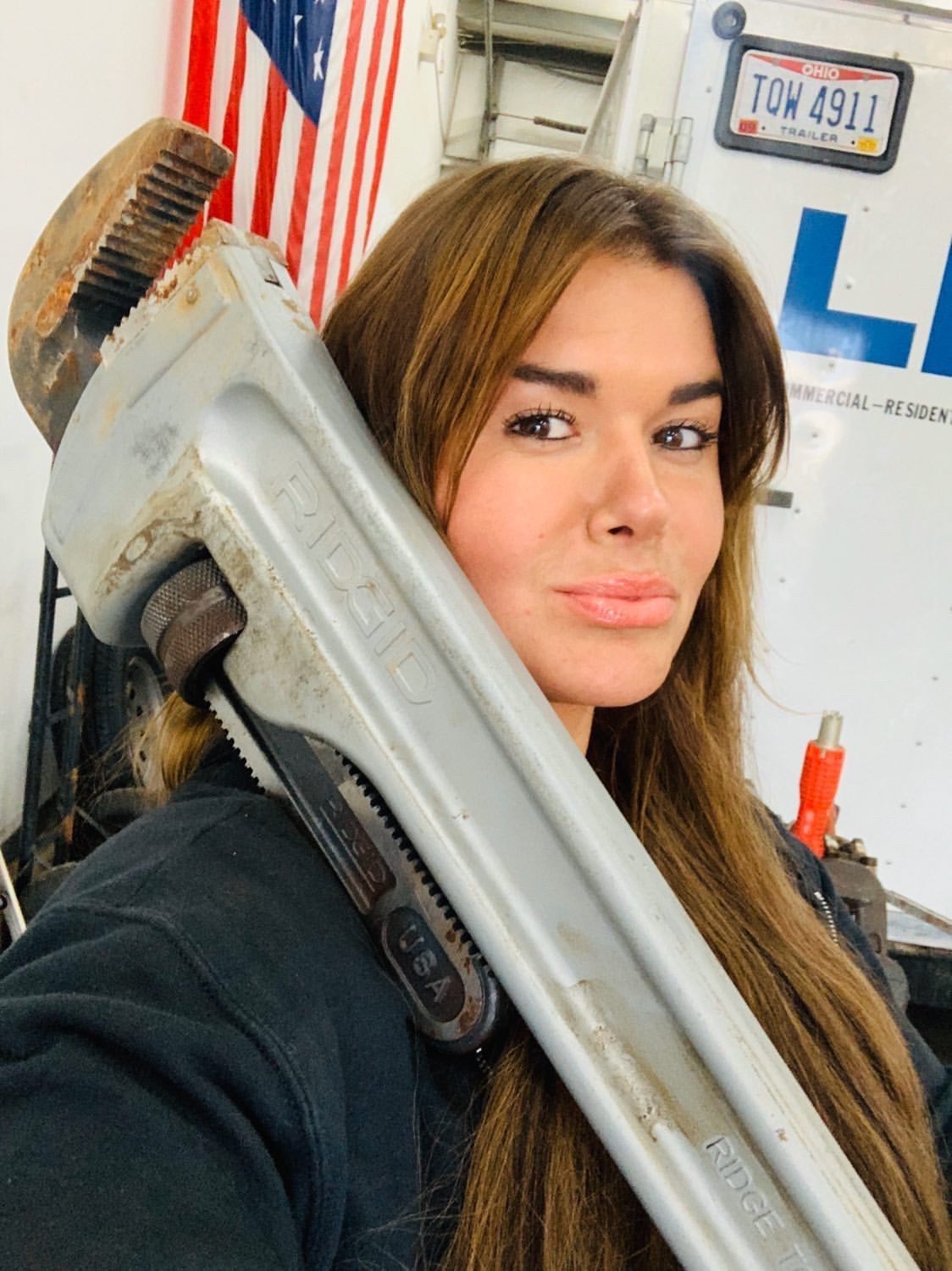 Linda Hudek
Linda Hudek
Owner, LH Plumbing Services LLC
Fairfield, Ohio
The most important things were knowing my worth as a professional and licensed plumber. So many people start a business thinking their previous boss was overcharging or “lining their pockets off my back,” in their words. Don’t undercharge. Knowing and understanding expenses is so important. Your wage is not the same as the business profit.
It’s also important to not fall for the temptation of going into business too quickly when you are not knowledgeable enough in the technicalities of you field. Being uneducated or undereducated and inexperienced in plumbing can cause major property damage and even death to yourself and your customers. I went into business still lacking some knowledge that I had to learn the hard way.
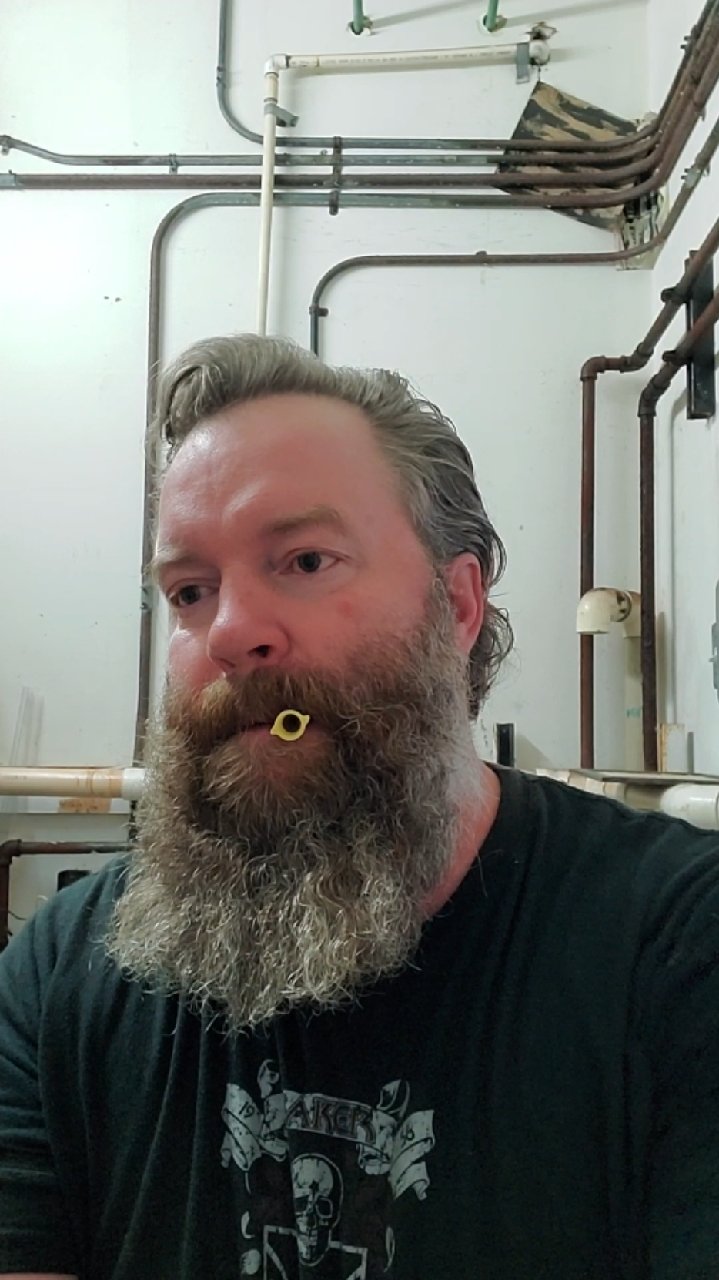 Bob Baker
Bob Baker
Owner, Baker Plumbing Inc.
Master Plumber/Gasfitter
Calgary, Alberta, Canada
Cash flow is KING! You can be the best tradesperson on earth with skill and knowledge oozing from your pores! None of that matters if you ain’t getting paid. So many people start their business by market research—what’s the average hourly rate. They phone around and get some pricing and figure the average is $115 an hour so I’m going charge $105 and steal my piece of the pie through price.
Initially, it seems like a decent plan but the guy starting his business three months after you has the same plan and before you know it you’re losing those cheap clients to the cheaper guy. My suggestion is add up all your monthly expenses—rent, fuel, truck, your personal wage, etc. and determine what you need to make to meet your needs. Distill that down to an hourly rate and stick to it. If you’re good, the clients will come.
Also, the best tools don’t make you the best. It’s a hard one with all the cool tools out there these days and their splashed all over social media. Set yourself a tool budget and stick to it. The formula pertains to skills, knowledge, experience, and then tools. Expensive tools don’t make you money, your skills and knowledge do. Tools make your job easier but as I’ve told my boys, learn the hard way first so you can appreciate the easier way.
Maybe this one is too old school but I think it tracks. Your personal appearance matters! You need a uniform—you ought to wear clothes that are cleaned, pressed and smell good. You need keep your appearance neat, clean and tidy. You, your person, needs to look presentable, smell good, teeth brushed, hair combed and be well put together.
It seems obvious but I’ve seen so many people starting out looking like they slept in the back of their trucks on some random Thursday. Even in today’s wide scope of acceptance, the disheveled look is always a bad one. Personally, I carry a brand new black shirt—still in the packaging—a variety of hats and a can of deodorant in the truck for those days where the first job of day goes horrible wrong. Your first impression is of vital importance and yet so is the 10th. People notice that stuff even if it’s sub-consciously.
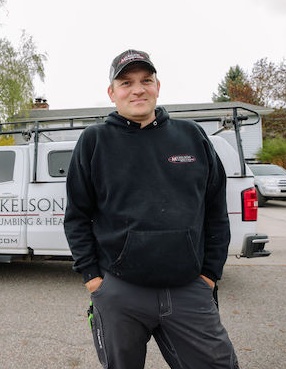 Andy Mickelson
Andy Mickelson
Owner, Mickelson Plumbing & Heating, LLC
Missoula, Montana
I wish I would have known how to anticipate the time required to run the behind-the-scenes portion of our business, not sure it would change anything, but nonetheless it would have been nice to know what to expect.
I have learned that every employee has their own baggage and quirks that show up occasionally and require a special set of kid gloves to handle.
I also have learned that I need to be open minded when it comes to trusting my employees to do their best and allow them to make choices that sometimes might not completely align with what I would have done.
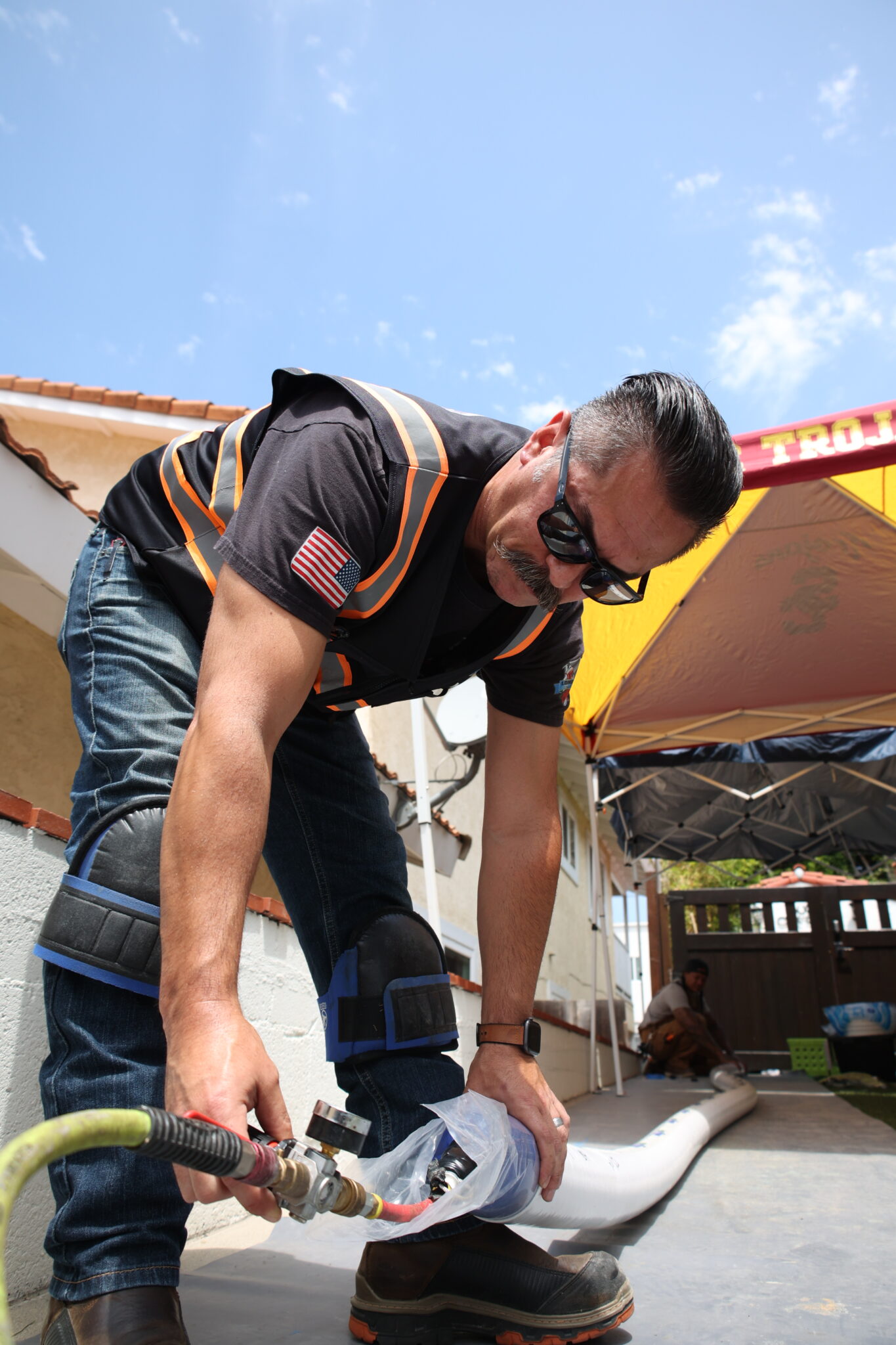 Mike Lomonaco
Mike Lomonaco
Owner, Lomonaco Coast Plumbing,
San Clemente, Calif.
Make sure you know business; it takes more than being a good technician and wanting to go out on your own to be successful.
Know your competition, and what separates you from your competition.
Know what your definition of success is, and where to draw the line. It’s about how much money you save, not how much money you spend. Be careful what you wish for, you just might get it. To start your own business is a major commitment. It’s a lifestyle change that doesn’t stop. It is a huge toll on all aspects of life that you will have to juggle.
